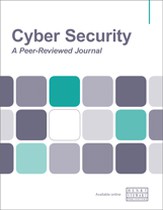Preventing cryptocurrency theft: Learning from the past to secure the future
Abstract
With the rise of cryptocurrencies, we have seen a rise in systems designed to protect these assets. However, without a formalised market or evaluation process, many such solutions are making avoidable mistakes in their implementation. This article discusses how we can learn from the past of payment security, to assist with securing the payments of tomorrow.
The full article is available to subscribers to the journal.
Author's Biography
Amos Kater was previously the Global Leader of the Payment Practice at UL’s Identity Management & Security division. Within the role he was responsible for the secure development of various payment, transaction and identity services. Amos joined Currence and the Dutch Payment Association as Head of Online on 15th August, 2018. Amos is a leading authority in the field of NFC, Mobile Payments and e/mCommerce. Amos joined UL in 2011 and prior to this, he worked at KPN for 15 years, mainly in strategic and innovative roles as a telecom professional. As a key industry knowledge speaker, Amos has inspired numerous audiences on the latest developments in the markets, including solutions regarding NFC, TSM, mobile wallets, PSD2, Automatic Fair Collection and mobile driving licences.
Andrew Jamieson has been working in the security of embedded systems for over 20 years, spending half of his time making devices and the other half breaking devices. During this time, he has worked with many different security evaluation methods, such as Common Criteria, FIPS140-2, ISO13491 and PCI PTS/HSM. Andrew regularly interfaces and works with device manufacturers from around the world and provides input to new security evaluation methodologies. Andrew helped create the UL IoT Top 20, to inform manufacturers on best practice to secure their devices from attack, and is active in helping to create standards to drive the increased adoption of IoT security around the world. Andrew holds a BA (Hons) in electrical engineering and a Master’s degree in applied science (majoring in information security).
